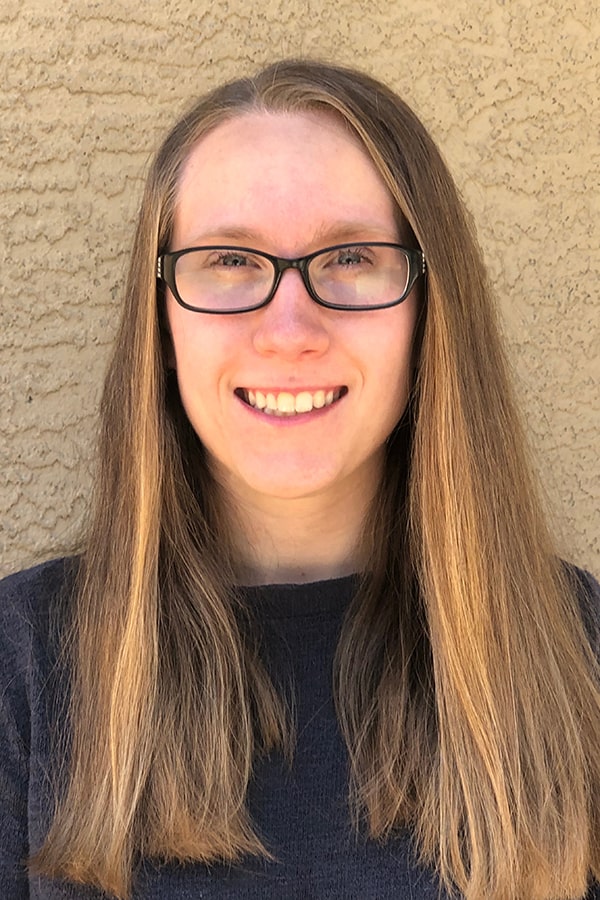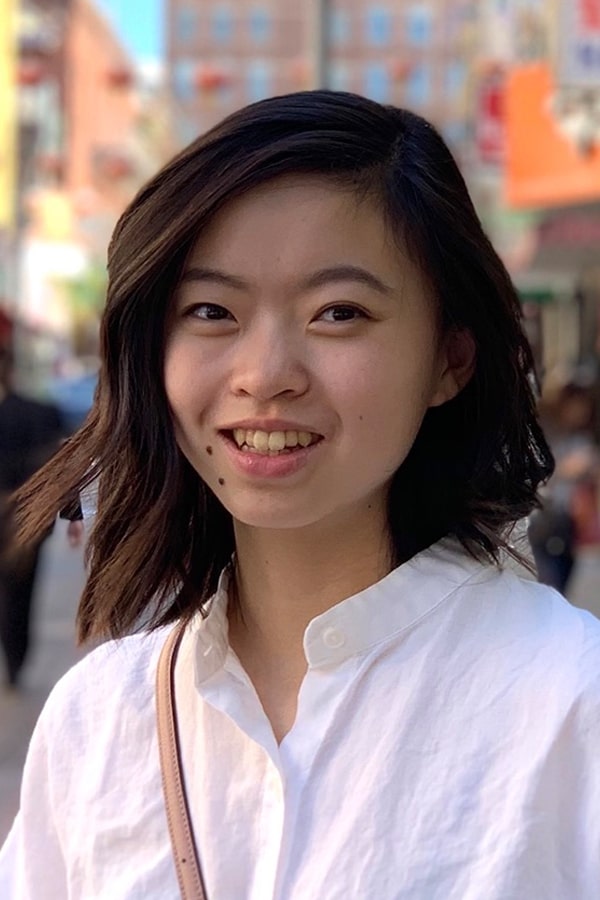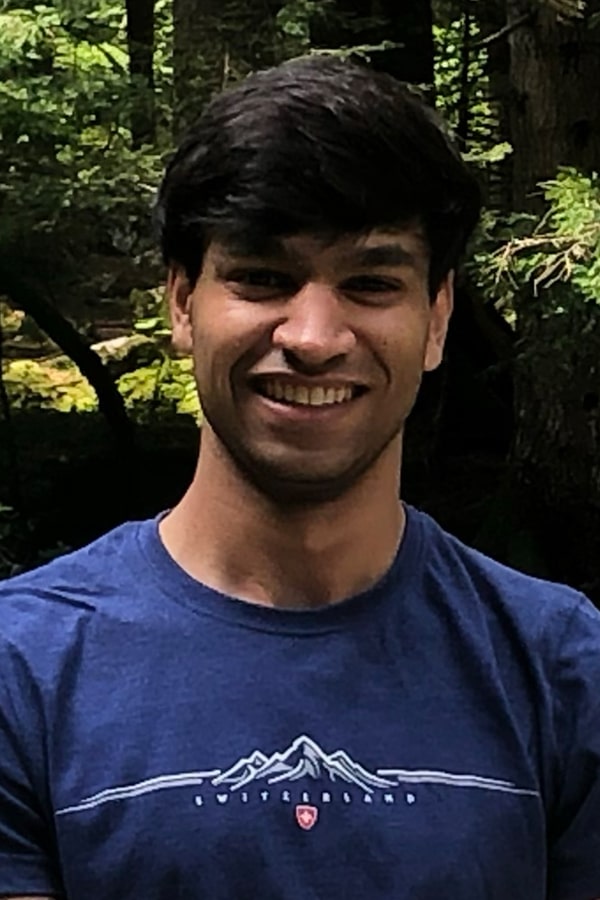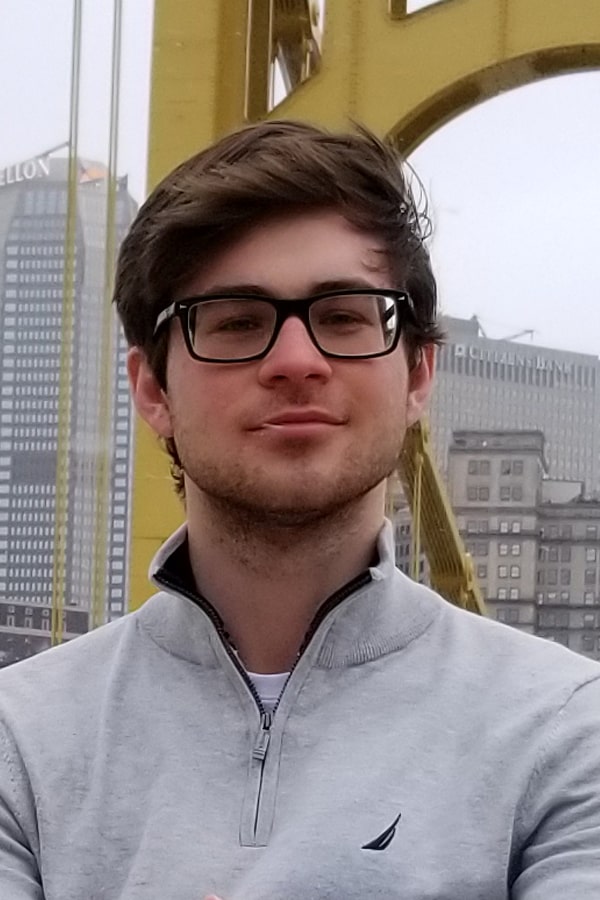Four Student Researchers Earn Goldwater Scholarships
Four Carnegie Mellon University students have received 2020 Barry Goldwater Scholarships to encourage their pursuit of research careers.
Cassandra Bishop, Jessica Lee, Shiv Sethi and Noah Stevenson are among this year's recipients of the scholarship. They are among the 396 students selected from an applicant pool of over 5,000 sophomores and juniors nationwide.
Stephanie Wallach, assistant vice provost for undergraduate education, said that CMU can nominate four students annually for the award. Brittany Allison, assistant director in the Office of Undergraduate Research and National Scholarships, oversees the university's Goldwater nomination process, which includes a committee of faculty members who discuss the nominations.
"Dr. Allison did a double take when she saw that all four of CMU's nominees were selected," said Wallach, who added that it is unusual for all four nominations to be selected. "This is an award that recognizes our CMU strengths in the fields of engineering, natural sciences and mathematics and the exceptional ability of our faculty to involve our immensely talented and highly motivated students in undergraduate research."
The award, given by the Barry Goldwater Scholarship and Excellence in Education Foundation, recognizes second- and third-year college students intending to pursue research careers in mathematics, engineering and the natural sciences, and provides up to $7,500 for tuition, mandatory fees, books, room and board.
CMU has been home to 39 Goldwater Scholars.
Cassie Bishop
 Cassie Bishop, a junior biological sciences major, is an ardent researcher with a keen interest in molecular biology.
Cassie Bishop, a junior biological sciences major, is an ardent researcher with a keen interest in molecular biology.
"I am fascinated by the molecular mechanisms of cellular pathways that allow cells to function normally in their environment as well as how those pathways can and do go awry in people, leading to diseases such as cancer," Bishop said.
Last summer, she conducted research on the mechanisms underlying cancer treatment resistance with Professor Tanya Paull as part of the Livestrong Cancer Institute's Summer Internship Program at the University of Texas, Austin.
She is planning to pursue a career in cancer research. Specifically, she wants to understand the carcinogenic drivers that cause that first cell to be cancerous and research immunotherapeutic approaches that could identify and eradicate these cancerous molecules.
Currently, Bishop investigates fruit fly stress response at the physiological and molecular level with Biological Sciences Associate Professor Brooke McCartney.
Outside of her research, Bishop is a supplemental instruction (SI) leader and supervisor. In this position, she mentors her peers in the introduction to modern chemistry course and supervises the SI leader training. She is co-president of the Mellon College of Science Student Advisory Council and a member of the Science Olympiad Club at CMU, which hosts an annual invitational competition for high school students.
Jessica Lee
 Jessica Lee, a junior majoring in computer science, is a member of the School of Computer Science's Student Advisory Council and plans to pursue a Ph.D. in computer vision and machine learning. Her goal is to develop techniques that make machine learning algorithms more efficient, scalable and explainable — similar to how a human brain is able to learn quickly.
Jessica Lee, a junior majoring in computer science, is a member of the School of Computer Science's Student Advisory Council and plans to pursue a Ph.D. in computer vision and machine learning. Her goal is to develop techniques that make machine learning algorithms more efficient, scalable and explainable — similar to how a human brain is able to learn quickly.
Obtaining a Goldwater scholarship, the most prestigious STEM scholarship for undergraduates, promises to be a big help in attaining those goals, she said.
"It's definitely hard to convince your parents to be on board with pursuing a Ph.D. instead of finding a job after graduation," Lee said. "However, the Goldwater enables student researchers to both be recognized for their work and to encourage them to pursue a research career in the future by getting involved in a nationwide community of researchers."
Shiv Sethi
 Shiv Sethi, a junior neuroscience major and Science and Humanities Scholar, is interested in neuroscience but has spent most of his time in the lab working on cancer research. He has worked in labs at the University of Pittsburgh, Washington University in St. Louis and at the École Polytechnique Fédérale de Lausanne in Switzerland.
Shiv Sethi, a junior neuroscience major and Science and Humanities Scholar, is interested in neuroscience but has spent most of his time in the lab working on cancer research. He has worked in labs at the University of Pittsburgh, Washington University in St. Louis and at the École Polytechnique Fédérale de Lausanne in Switzerland.
Sethi currently is working with University of Pittsburgh scientists Louis Falo and Emrullah Korkmaz who are researching a new way to deliver drugs for skin cancer. The new method, called microneedle arrays, could help doctors deliver medicine to cancer patients with greater efficacy. This type of project helped Sethi realize his passion for research and aspire to earn both a M.D. and Ph.D. after graduation.
"When I started working in the lab, my career goals changed," he said. "I've had fantastic experiences doing independent research as an undergrad, which helped me see that I could do more than help patients as a M.D. I want to do hands-on work in the lab, on the translational side, to help patients in a different way."
In the future, Sethi hopes to focus on brain cancer research, especially aggressive diseases like Glioblastoma.
"There are not a lot of solid approaches to treat it right now," said Sethi, who also is a SI leader for organic chemistry. "I want to integrate my major with my research interests to better target these more aggressive invasive tumors."
Noah Stevenson
 Noah Stevenson, a junior in mathematical sciences, is pursuing CMU's Mathematical Sciences Honors Degree Program. He takes both undergraduate and graduate level classes and will graduate from CMU next year with his B.S. and M.S. in mathematical sciences.
Noah Stevenson, a junior in mathematical sciences, is pursuing CMU's Mathematical Sciences Honors Degree Program. He takes both undergraduate and graduate level classes and will graduate from CMU next year with his B.S. and M.S. in mathematical sciences.
At CMU, Stevenson has molded his interests in both teaching and research. He has served as a teaching assistant for the mathematical sciences’ courses Analysis I and II, and he has conducted several research projects studying partial differential equations in fluid mechanics and function spaces, advised by Associate Professor of Mathematical Sciences Ian Tice.
His projects are influenced by his interest in applying abstract mathematical concepts to solve problems in the physical world.
Through his research, Stevenson has discovered special math solutions and submitted a manuscript to be published.
These experiences have shaped Stevenson's career plans to earn his Ph.D. and become a researcher and professor of mathematics.
